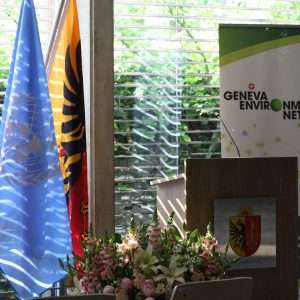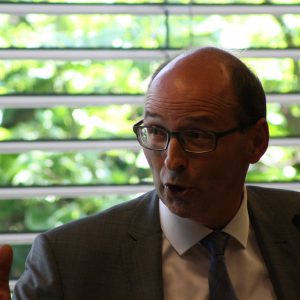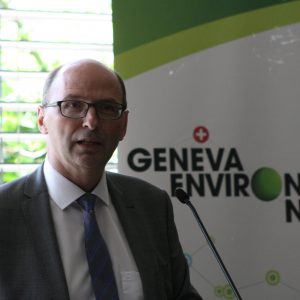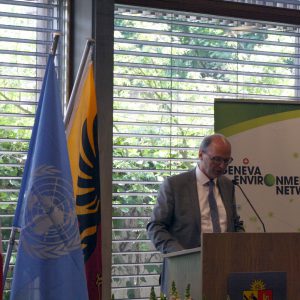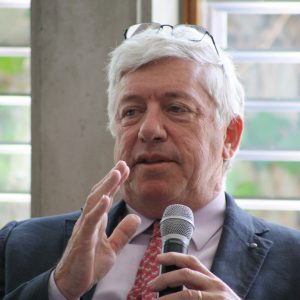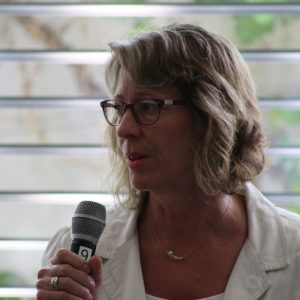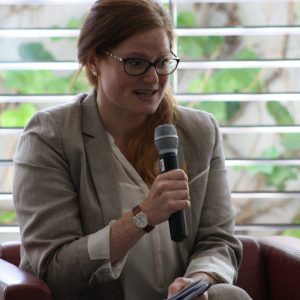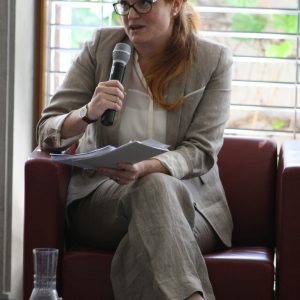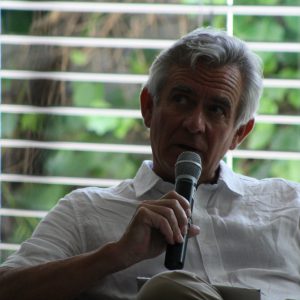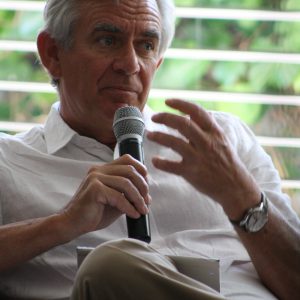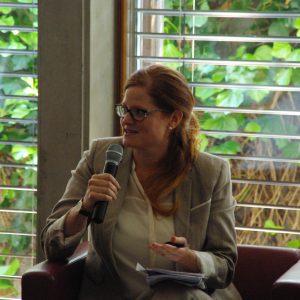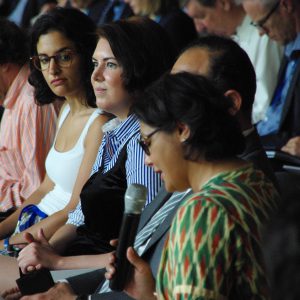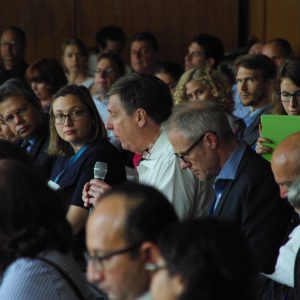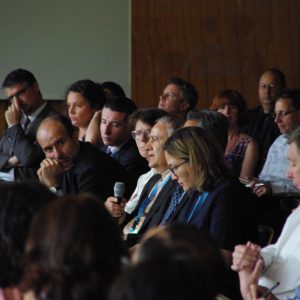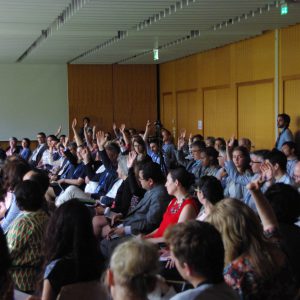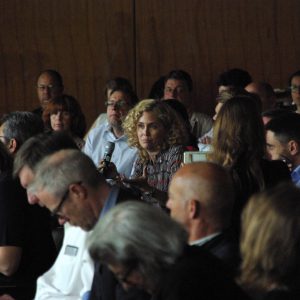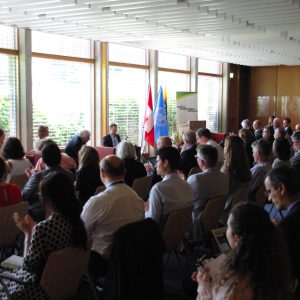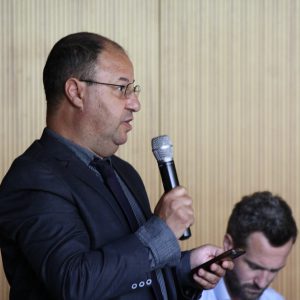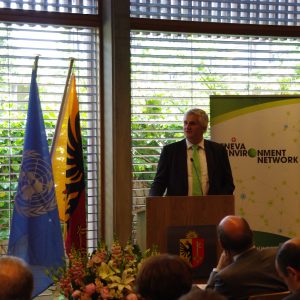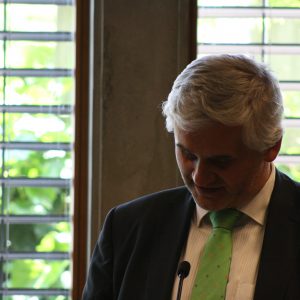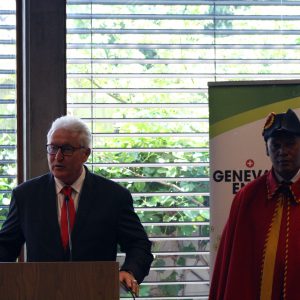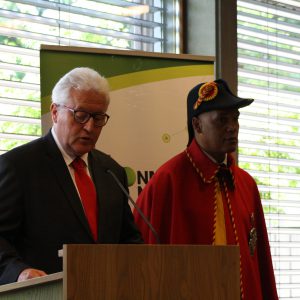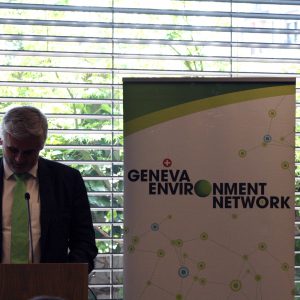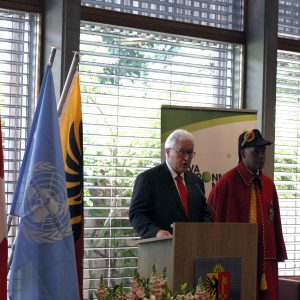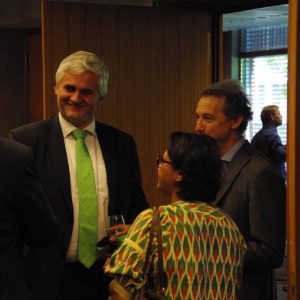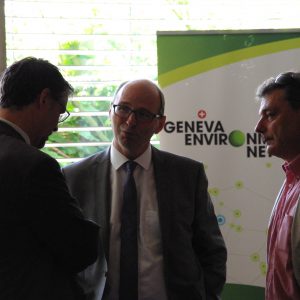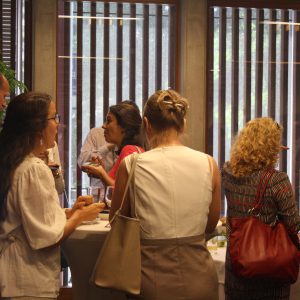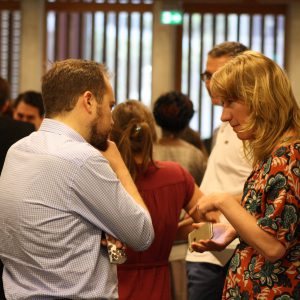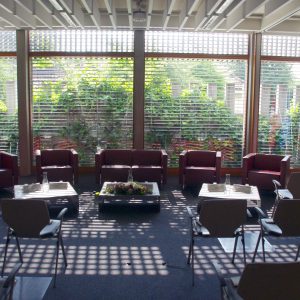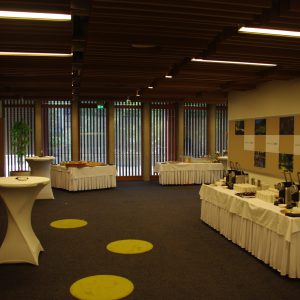Event
Rethinking Nature Conservation for the 21st Century
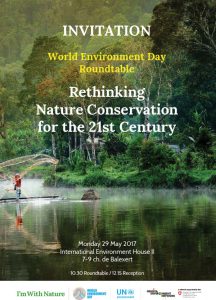
29 May 2017
10:30–12:30
Venue: International Environment House II (7-9 ch. de Balexert)
Organization: Geneva Environment Network
World Environment Day Roundtable
World Environment Day celebrations in Geneva kicked-off with the “Rethinking Nature Conservation for the 21st Century” roundtable, at the International Environment House II.
To find all the information about other activities taking place as part of the World Environment Day 2017 and the European Sustainable Development Week, access the website through this link: http://jme-ge.ch/
Background
The transformation called for in the 2030 Agenda requires a fundamental rethinking of our approaches to sustainable development and the assumptions on which they are based. This is particularly true for biodiversity conservation, a challenge of equal dimension to that of climate change, but one that has not achieved anything like the same traction.
The World Environment Day Roundtable panel examined what is needed to design and implement biodiversity conservation approaches for the 21st century.
Agenda
Opening Statements by Marc CHARDONNENS, State Secretary for the Environment, Director of the Federal Office for the Environment, Switzerland
Panel discussion with:
Jon HUTTON, Director, Luc Hoffmann Institute
Lynda MANSSON, Director General, MAVA
Eva ZABEY, Director, Natural Capital and Ecosystems, World Business Council for Sustainable Development (WBCSD)
Mark HALLE, Senior Fellow, International Institute for Sustainable Development
Moderator:
Benjamin SIMMONS, Head, Green Growth Knowledge Platform
—————
Official speeches:
Jan DUSIK, Director, Europe Office, UN Environment
Luc BARTHASSAT, State Councilor, Geneva Canton
Marc CHARDONNENS, State Secretary for the Environment, Director of the Federal Office for the Environment, Switzerland
Summary
Marc Chardonnens
Ben Simmons introduced panelists (see biographies) and started by asking Mark Halle
- Are we too early to be rethinking conservation?
- Have we done enough in recent years for nature conservation?
- Are we on the right track? Do we have reasons to concern?
Mark Halle
- Targets and goals are essential, as it is to have committed governments, but what counts is what happens on the ground.
- We have measures that are good but not enought to solve the problem.
- Efforts in conservation are addressing a treath that is almost as great to this planet as climate change, but not at the level it should be. We are clearly not doing enough.
- Conservation objectives & targets such as Aichi Targets won’t be achieved if we don’t redesign our approach & assumptions.
- Conservation 1.0 consisted largely in setting a side land form human needs, conserving best landscapes, most magnificant species.
- Conservation 2.0 recognized that conservation couldn’t be appart from human development.
- Mainstreaming conservation not enough. Biodiversity loss continues to accelerate, rethinking economy is now necessary.
- The world is changing & we need to redesign our conservation approaches to better integrate new technologies.
Ben Simmons asked Lynda Mansson
- Do you agree with Mark assessment on where conservation stands?
- What would you see as bigger challange to overcome these challenges?
Lynda Mansson
- We did a lot of progress but are not achieving what we could or should.
- Labelling our work as green is not helping. It isolated rather than including. Environmentshouldn’t be only on the political left agenda. We need to work all together.
- Healthy planet & healthy economy go together.
- Importance of involving youth in NatureConservation.
- Overcome economy vs conservationdichotomy.
- MAVA supports Green Finance & inter-generational leadership programme to allow younger people to implement their bright ideas.
Ben Simmons asked Eva Zaber
- What do you thing about short term versus long term time vision of solutions for private sector?
- What is the main challenge to have increased business engagement?
Eva Zaber
- Many companies do have a directly relationship with biodiversity. Most see their relationship as very indirect.
- To involve private sector & business standardised quantification of biodiversity is a recurrent challenge.
- The Natural Capital Protocol is helping companies to identify, measure & value their impact & dependency on natural capital.
- Planetary Boundaries concept useful for businesses.
Ben Simmons asked Jon Hutton
- Do you agree that efforts to protect biodiversity are coming out short?
- Is the challange around iteration or innovation.
Jon Hutton
- We haven’t work hard enough, need do to invest more but we shouldn’t abandon the good things we already have that do work.
- We shouldn’t throw out conservation 2.0 and the good things it brought.
- We do need to invest more in some conservation 2.0 approaches but they are not engough. The Oxford Martin School meeting in early May concluded that positive disruption solutions are coming, probably not from the nature conservation world. We need to be ready and let the doors open.
- Reliable funding needed for long term data collection to monitor Aichi targets & SDGs outstanding.
- Our planet is going to turn into a big garden & we need to become better farmers.
- Biodiversity Conventions & IPBES are underfunded. There is very low political support for biodiversity.
- We need new international agenda: 1 decarbonize the economy, 2 maintain healthy biosphere, 3 strong focus on equity.
More information and documents
Full video of the event: https://www.facebook.com/GenevaEnvironmentNetwork/videos/10156568561388018/
Article by Alexander Kasterine, Head of Trade & Environment Programme at ITC: Nature conservation (not biodiversity) for the 21st century
https://www.genevaenvironmentnetwork.org/wp-content/uploads/2020/05/biographies_29_may_2017.pdf

